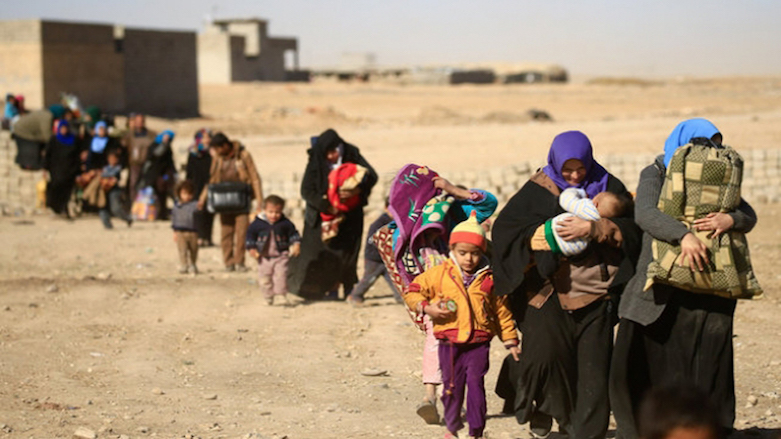2019 will see return of about one million IDPs, Iraqi minister says

ERBIL (Kurdistan 24) – The Iraqi government will cooperate with local and international organizations to facilitate the return of tens of thousands of displaced persons to their original homes in 2019, an Iraqi official said on Thursday.
In a meeting with Chief of Mission of the International Organization for Migration (IOM), Iraq’s Minister of Planning Nuri al-Dulaimai said Baghdad would return about one million Internally Displaced Persons (IDPs) to their areas.
Nearly five million Iraqis have been displaced since the so-called Islamic State overran two-thirds of the country in mid-2014. Authorities say half of them have returned to their homes, but the other half remain displaced, with most residing in the Kurdistan Region.
Although their areas have been liberated from the extremist group, about 1.5 million IDPs and refugees continue to stay in the Kurdish region due to lack of security and basic services in their hometowns.
Then Iraqi Prime Minister Haidar al-Abadi announced the “final victory” over the Islamic State on Dec. 9, 2017. However, the announcement was premature as the group continues to carry out attacks through sleeper cells.
On the first anniversary of the announcement, current Iraqi Prime Minister Adil Abdul-Mahdi promised his government would make every effort to ensure the return of displaced persons.
“The return of the displaced and the reconstruction of their cities is a goal that we will do our utmost to achieve,” Abdul-Mahdi said in a Dec. 10, 2018, statement the Defense Ministry released.
Baghdad has previously said the reconstruction campaign of the cities formerly under Islamic State control, including but not limited to Mosul, Tikrit, Ramadi, and Falluja, requires 80 to 100 billion USD.
So far, many countries in the international community have donated funds that are intended for reconstruction efforts.
Iraqi authorities already face many challenges in rehabilitating the infrastructure across the country, restoring stability to the affected areas, and developing the service sector as the country continues to rank atop the candidates for the most corrupt nations in the world.
